Our banking sector, where no rules apply for vested quarters

In the banking sector of Bangladesh, exemptions from rules and regulations for powerful loan defaulters seem to be the default rules. As the nation battles with high inflation and financial instability, cash-strapped Janata Bank continues to be extraordinarily sympathetic towards one of its five largest borrowers, AnonTex, an export-oriented garment manufacturer which has the highest amount of defaulted loans in the banking sector since March. And this month, the Islami Bank, also mired in a liquidity crisis, approved a Tk 700 crore loan to a closed concern of the scam-hit group. This story is nothing new; the ongoing trend of unjustifiable leniency towards AnonTex underscores the crony capitalism that has become the hallmark of the banking sector.
To accommodate AnonTex, last year, the central bank seemed to bend over backwards and ignore its own rescheduling policy where a defaulter has to pay a down payment of 10-50 percent of the defaulted loans to reschedule them. An investigation by The Daily Star last year had revealed that AnonTex Group will only pay Tk 86 crore to reschedule its non-performing loans (NPLs), while the group's total loans with Janata Bank amounted to Tk 6,000 crore. At the end of 2022, AnonTex's liabilities to Janata stood at a whopping Tk 7,726 crore, which is 334 percent of the bank's paid-up capital, sharply against the rule that does not allow the sector's four state-run banks to lend more than 25 percent of its paid-up capital to a single party.
This is not the first time that the Bangladesh Bank (BB) has decided to do away with its rules for the usual suspects involved.
AnonTex Group and its habit of errant defaulting while lobbying for fresh loans has been widely reported for years. In 2018, the Bangladesh Bank issued repeated warnings when Janata Bank did not mark Tk 2,643 crore of its Tk 5,508 crore loans given to AnonTex as classified, ignoring the central bank's instructions. The amount of AnonTex's loans at the time was already 13 times higher than the ceiling set by the BB. The BB's own probe report stated that the enormous irregularities threatened the very existence of the state-owned bank. Then the BB decided to do a U-turn and give AnonTex the green light to take more loans from other banks.
The Bangladesh Bank's green signal bullet-proofed Islami Bank and AnonTex from violating the Bank Company (Amendment) Act, 2023, which states that no entity that has defaulted on any loan anywhere is eligible for new loans. Bangladesh ranks second-highest in terms of bad loan ratio in South Asia, and the tendency to keep the laws on the sidelines and extend free passes to vested quarters is the precise reason why we're leading in the wrong financial indicators.
Forging ahead, AnonTex group also topped the list of defaulters presented to the parliament in 2020. A BB investigation that year unearthed that the group had been performing a fraudulent practice of setting up shell companies, through which it syphoned off large volumes of money from banks. According to the investigation, AnonTex chairman and managing director had swindled Tk 5,768 crore from Janata Bank by taking various loans for 22 companies; all of them were defaulters.
Similar to the scandal in 2018, the 2020 probe also found collusion with high officials in the Janata Bank Corporate Branch who approved loans beyond the legally permissible limit. The BB report was submitted to the Anti-Corruption Commission (ACC), yet no visible accountability for AnonTex or Janata Bank has clearly materialised.
And year after year, Janata Bank's generosity towards AnonTex continued on in the same vein without any accountability. A recent report by the Office of the Comptroller and Auditor General (CAG), on the other hand, revealed 31 counts of "serious irregularities" in the state-owned bank, from 2015 to 2020, involving Tk 13,110.8 crore. The irregularities included gross non-compliance with rules and regulations, and the lender's own credit risk mismanagement. Unsurprisingly, foremost in the irregularities was the rescheduling of AnonTex's loans amounting to Tk 5,243.6 crore.
As the crisis worsens – with the government recapitalising state-run banks using public coffers – Janata Bank is yet to give any hint to address its irrational indulgence to the controversial business. AnonTex, whose website touts an annual turnover of $150 million, has made negligible repayments to the bank in the last 13 years. Yet, in November last year, the Janata Bank board extended an interest waiver worth Tk 3,359.19 crore to AnonTex, on the condition that the principal amount be paid back by June 15 this year – otherwise the loans would be considered classified. The errant borrower reneged its obligations and failed to repay the lump sum. But as far as consequences go, AnonTex has been rather untouchable. Their deadline to repay has been extended till December this year. But when abundant evidence has been established by the Bangladesh Bank itself to show that the lion's share of the loans have been obtained through forgery and irregularities, what makes the AnonTex eligible to receive the rather kind facility of an interest waiver?
The most concerning aspect of it all is the "no objection" certificate by the central bank last year which has served to aid Janata Bank's favourtism towards AnonTex, by keeping the bad loans legally unclassified, which eventually paved the way for Islami Bank to disburse new loans to the errant borrower. In other words, the Bangladesh Bank's green signal bullet-proofed Islami Bank and AnonTex from violating the Bank Company (Amendment) Act, 2023, which states that no entity that has defaulted on any loan anywhere is eligible for new loans. Bangladesh ranks second-highest in terms of bad loan ratio in South Asia, and the tendency to keep the laws on the sidelines and extend free passes to vested quarters is the precise reason why we're leading in the wrong financial indicators.
To add on to the list of questionable characteristics of the fresh loan worth Tk 700 crore from the Islami Bank, a report by Prothom Alo has revealed that it was approved to Shob Meher Spinning Mills, a factory owned by AnonTex, and built with loans from Janata Bank; a signboard pasted on its wall allegedly reads, "Shob Meher Spinning Mills financed by Janata Bank Limited." Interestingly, the factory has been closed for over a year. Of the Tk 700 crore disbursed for non-operational facilities, Tk 500 crore is for LCs and guarantee. The LC opening also comes at a time when the country's forex reserves are on a decline, while business production in various industries have been threatened by the inaccessibility to open LCs and import raw materials.
Local textile millers and spinners have been struggling to import raw materials such as cotton, dyes, viscose, etc, which are vital to manufacture garment items. According to the Bangladesh Bank data, LC openings slumped 26 percent in FY23. From the macroeconomic perspective, the decline in imports along with high inflation underline the nation's economic slowdown.
Yet, LCs and fully-funded loans were somehow readily available for the AnonTex's non-operational factory through the Murabaha TR process to purchase commodities. No information, however, exists on the purchase of such commodities, echoing the AnonTex's 2020 scandal, where money was borrowed to import goods for shell companies that did not exist. Reportedly, the loan was disbursed in a hurry, anonymous officials from Islami Bank told Prothom Alo. Essentially, this means AnonTex is repaying the loan of one bank by borrowing from another — and no legal provisions exist to allow that.
With all such irregularities happening, would it be wrong to assume that the central bank, flouting its own regulations, is acting like a middle-man in these questionable dealings? The banking sector has been held hostage by the dominance of loan defaulters, political influence and collusion for years. And this culture of repeatedly failing to rein in wilful defaulters is attributable to the deterioration of the economy's health, as indicated by Moody's downgrade of Bangladesh's sovereign rating. Yet, we would not have been in this situation in the first place if the central bank diligently carried out its very responsibility: to serve as a guardrail for the financial sector and ensure compliance.
But compliance seems to be reserved for the likes of poor farmers who are being harassed for small loans, while big fish defaulters like AnonTex – which faces allegations of forgery and money laundering – are being allowed to get away with gigantic bad loans. AnonTex's loans reflect huge risks for the public and depositors in both the Janata Bank and Islami Bank. Such toxic loans will undoubtedly worsen the existing liquidity crisis the banks are facing. So it's worth asking: whom do such risks of rescheduling bad risky loans even serve?
There has been pressure from the IMF conditions to reduce defaulted loans. But defaulted loans rose by Tk 11,000 crore in the January-March quarter, while banks were able to only recover Tk 3,314 crore, according to BB data. So what exactly does pandering to delinquent defaulters like AnonTex accomplish? How bad do the indicators have to get for the banking sector to start applying its rules?
Excuses from our higher authorities are offered routinely, but we know all too well that no excuse that makes economic sense can be applied to make sense of the misadventures of AnonTex. Our banking sector is at a critical juncture, where a turning point is becoming increasingly necessary. So it goes without saying that tangible accountability mechanisms have to come about to show that pulling out of the economic crisis for the people's sake is more important than gratifying infamous businesses that have been pushing the economy to the ground.
Ramisa Rob is a journalist at The Daily Star.
Follow The Daily Star Opinion on Facebook for the latest opinions, commentaries and analyses by experts and professionals. To contribute your article or letter to The Daily Star Opinion, see our guidelines for submission.

 For all latest news, follow The Daily Star's Google News channel.
For all latest news, follow The Daily Star's Google News channel. 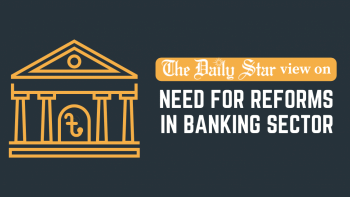
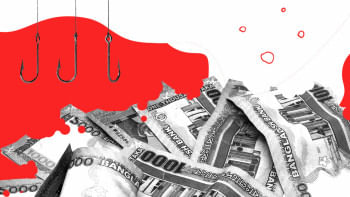
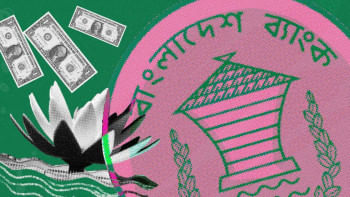


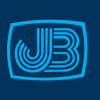

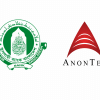
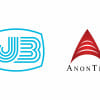



Comments